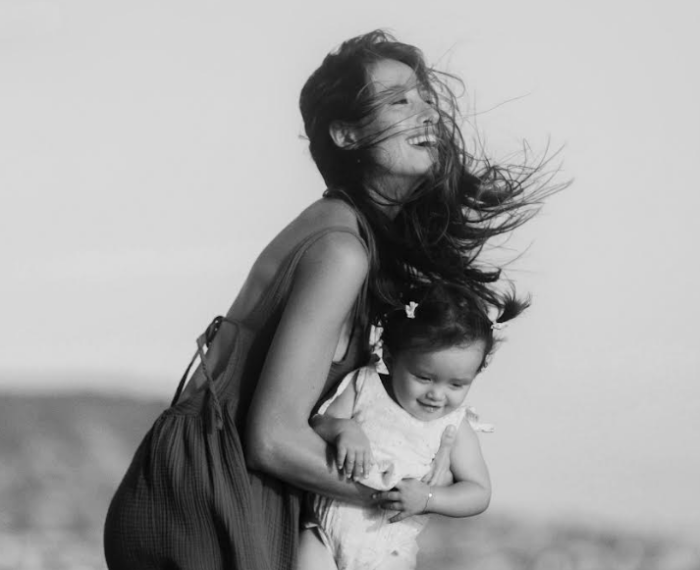Have you ever felt a loss of identity? An inextricable but definite feeling that you were “out of touch” with yourself and reality?
If you have ever experienced divorce, heartbreak, the birth of a baby, the loss of a loved one, a career change, or any major life quake, then chances are you have grappled with a loss of identity.
Change is the only certainty in life and yet when it happens, especially when it involves major life transitions, we struggle. We fail to adapt to the changes that are underway and tend to attach ourselves to anything and everything that reminds us of how things used to be—including our identity.
We may do this because the feelings are comfortable, familiar, and give us a sense of control. Sometimes we do it consciously, while other times it may be due to our own ignorance. It’s also possible that change does not cause our clinging but happens alongside it. Whatever the case may be, the fact is that many of us have a hard time adjusting to change. We may actually resist it altogether.
As a new mother, I can attest to this.
For the first months of postpartum, I was beside myself, completely overwhelmed by my new responsibilities as a mother. I struggled in the same myriad of ways many new mothers struggle in the early months, drained by the constant demand to feed, clean, clothe, and soothe a newborn.
Even more than that, I had a hard time adjusting to the new “me” that emerged. I became hurried and harried, chronically stressed, and experienced anxiety for the first time. It was unnerving. I didn’t recognize myself. I wondered what happened to the cool, calm, and collected self I’d prized myself to be.
I’m not exempt from life’s hardships, having experienced some harrowing events others won’t likely see or face, but I’d always been able to restore my equilibrium. Motherhood, however, was proving to be something beyond my reach. I was stuck deep in the mud, uncertain if I could ever crawl my way back to sanity.
Then one day, I had an epiphany, a momentary glimpse into the nature of my being. This brief but profound insight helped me see the transient nature of my being—I was clinging to a fixed identity which was causing me much suffering.
Here is what my identity crisis revealed about the true nature of my being, and what we can all learn from it:
1. Our transient nature. According to Buddhist view, we do not exist in the world as we think we do. Our idea of self is an illusion. We are not permanent, solid, or fixed beings but rather like flames existing from one moment to the next. In Rahula Walpoha’s book, What the Buddha Taught, the author explains that “what we call I or being is only a combination of physical and mental aggregates which are working interdependently in a flux of momentary change within the law of cause and effect.” He goes on to explain that “there is nothing permanent, everlasting, unchanging, or external in the whole of existence.” Essentially, everything in our phenomenal world is relative and conditioned to change. There is no absolute substance like “self” or “soul” that exists within or without. And herein lied my trouble.
2. Suffering arises out of attachment to an illusory self. I had failed to see the illusory nature of my being and clung to a fixed identity. Not just any identity, but an identity that was far out of my reach. In my eyes, I was steady—not immune to life’s ups and downs, but resilient and able to quickly get back on my feet. While this had been true up until my crisis, I found myself failing to accept the inherent emptiness of my nature and my dependence on so many factors, like my commitment to yoga, meditation, journaling, and self-care that had made that possible. There were also some unhealthy practices I had adopted to help me cope, like denial, avoidance, and a dependence on alcohol, all of which I was in the process of releasing.
3. Interdependence. Everything is a momentum that builds upon itself. One thought leads into the next, which sometimes results in an action or fixes upon a deeply held belief. How we present in the world is an accumulation of our thoughts, habits, practices, and the beliefs that preceded. For me, pouring all my time and energy into my baby left no room for meditation, yoga, journaling, and all my usual self-care routines that made up my equipoise. Add to that sleep deprivation, crazy hormones, and an endless stream of anxious thoughts, and you have one suffering mama.
When we undergo a major life transition, the version of ourselves that has been playing out in the world is interrupted. We experience an exhaustion of “self” as we once knew it. It is these life moments that wake us to “our selves” and show us the ever-changing, impermanent nature of self. For example, we often hear of mothers having an existential crisis. When they return to their version of “normal,” we hear them saying things like, “I’m feeling like myself again.” This often coincides with mothers returning to the workforce and re-engaging with their friends, hobbies, and activities that made them who they were.
4. The importance of mindful awareness. If we want to mitigate our chances of enduring an identity crisis or simply aim to be more at ease with change, it is vital to check in with ourselves. We can ask ourselves how we are showing up in the world, in the present moment. For example, when we wake in the morning, we can assess our sleep and ask, “How do I feel today? Did I get enough rest, or am I a little grouchy?” Depending on the answer, this mindfulness will allow us to tend to our current state with care. It is also important to do this on a broader scale, taking a step back and assessing the changes in our lives, both big and small. Transitions are inevitable, but the pain and suffering that arises from them are optional if we can be mindful of the conditional nature of our being.
My identity crisis, as tough as it was, afforded me the opportunity to experience first-hand the Buddhist teachings of impermanence and the transient nature of our being. I am now mindful not to cling to any fixed identity, realizing that there are many factors that I’m dependent upon that make me the version of myself I like to be. And, thankfully, I am back at a place in my life where I can reintegrate the activities and practices that contribute to my well-being.
~
Please consider Boosting our authors’ articles in their first week to help them win Elephant’s Ecosystem so they can get paid and write more.
~









Read 9 comments and reply